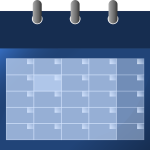The aims and objectives of the Pearson Edexcel Level 3 Certificate in Mathematics in Context are to support the mathematical needs of a range of AS, A level and BTEC Level 3 qualifications, and to provide a progression from GCSE Mathematics. It’s also supported by Higher Education institutions and employers and recognised in UCAS points.
If you’re planning to study subjects such as Science, Geography, Business, Economics or social sciences at A level, or vocational qualification, or are planning to take an apprenticeship or move into employment, Core Maths will be useful to help refine and develop your maths skills.
The aims and objectives of the course:


The Mathematics in Context course builds on GCSE maths to apply maths to real-world contexts and problems. The course covers four areas of maths, Applications of statistics, probability, linear programming and sequences and growth.
Statistics is the study of data collection, organisation, analysis, interpretation and presentation. It is increasingly important in life, study and employment in various contexts. It is important to be comfortable and confident in dealing with real data. It is used in areas of study such as actuarial.
Probability is used to determine a numerical value for the chance or risk of events happening. Probability theory has made significant contributions to almost all branches of science and engineering over the last 100 years. Probability is used in areas of study such as finance, science, artificial intelligence, business, computer science and philosophy.
This is a problem-solving approach to achieve the best outcome (such as maximum profit or lowest cost) through consideration of conditions that can be modelled by linear relationships. Linear programming can be applied to a variety of contexts in business and industry. It is used most extensively in business and economics but is also utilised for some engineering problems. Linear programming models are used in industries such as transportation, energy, telecommunications and manufacturing. Linear programming has proved useful in modelling diverse types of problems in planning, routing, scheduling, task assignment and design.
A mathematical understanding of sequences, growth and decay can be applied to a variety of real-life contexts and problem-solving tasks, including financial mathematics, population growth, epidemics, earthquakes and radioactive decay.

The Pearson Edexcel Level 3 Certificate in Mathematics in Context consists of two externally examined papers in May/June. The qualification is graded and certificated on a five-grade scale from A (the highest) to E (the lowest). Students must complete both papers in May/June in any single year.
To register to attend an enrolment /assessment session use the Apply now button below.
Mathematics in Context (Core Maths) can lead to several different career and education paths.
The Advance Maths Support Programme can offer further advice.
We have our own careers guidance to support you, too when you join a class.
One of the most important things we can do is help you to prepare for employment and progress with your career. Our Make It Happen approach to CEIAG offers a variety of support including:
You may unsubscribe from these emails at any time. For more information, please read our privacy policy.




© Copyright Manchester Adult Education Services. All rights reserved 2023
| Cookie | Duration | Description |
|---|---|---|
| cookielawinfo-checkbox-analytics | 11 months | This cookie is set by GDPR Cookie Consent plugin. The cookie is used to store the user consent for the cookies in the category "Analytics". |
| cookielawinfo-checkbox-functional | 11 months | The cookie is set by GDPR cookie consent to record the user consent for the cookies in the category "Functional". |
| cookielawinfo-checkbox-necessary | 11 months | This cookie is set by GDPR Cookie Consent plugin. The cookies is used to store the user consent for the cookies in the category "Necessary". |
| cookielawinfo-checkbox-others | 11 months | This cookie is set by GDPR Cookie Consent plugin. The cookie is used to store the user consent for the cookies in the category "Other. |
| cookielawinfo-checkbox-performance | 11 months | This cookie is set by GDPR Cookie Consent plugin. The cookie is used to store the user consent for the cookies in the category "Performance". |
| viewed_cookie_policy | 11 months | The cookie is set by the GDPR Cookie Consent plugin and is used to store whether or not user has consented to the use of cookies. It does not store any personal data. |